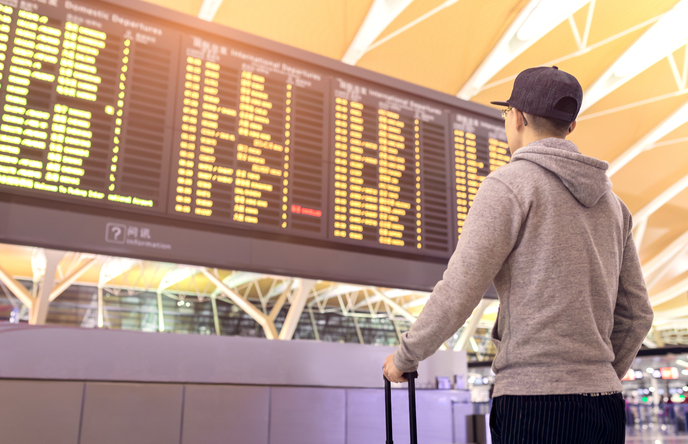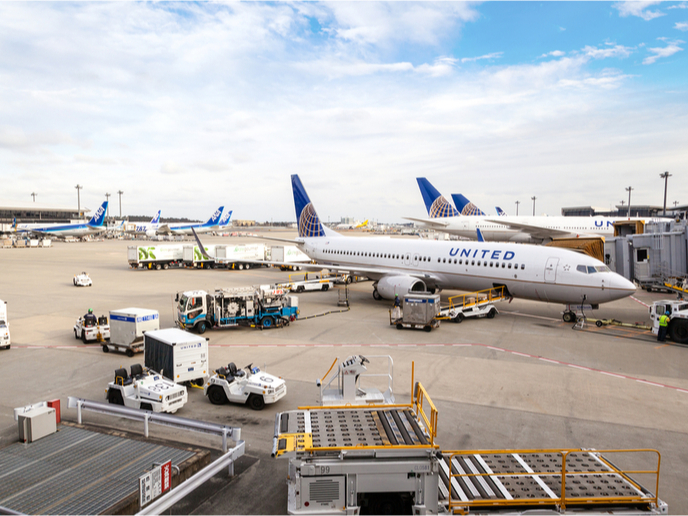AI-powered flight allocation cuts costs and delays
Balancing air traffic demand with capacity is critical to ensuring the smooth and orderly flow of flights. With rising passenger numbers and increased flight volumes, new innovative technologies will be needed to help flexibly manage ever more congested airspace. “For flights, air traffic flow management slots are allocated times of departure, arrival or passage through a particular airspace sector,” explains SlotMachine(opens in new window) (A Privacy-Preserving Marketplace for Slot Management) project coordinator and senior lead scientist Eduard Gringinger from Frequentis in Austria. “These are issued by the EUROCONTROL(opens in new window) Network Manager, to regulate traffic in congested areas of airspace.” To ease congestion, simple swaps between two flights can currently take place. Such exchanges help airlines to prioritise certain flights, according to flight cost structures, to minimise costs and reduce passenger delays. For airlines, the allocation – and swapping – of these flight slots is therefore a critical cost issue. “A challenge here is that flight cost structures, which influence how airlines prioritise flights and may vary for any number of reasons, are highly confidential,” notes Gringinger. “This is not information that airlines necessarily want to share with others. This has hampered slot swapping between different airlines.”
Efficient flight allocation using blockchain
The EU- and industry-funded SlotMachine project sought to harness the power of artificial intelligence (AI) technology to create a semi-automated flight allocation swap platform, based on the cost structure priorities of different airlines. The project was funded within the framework of the SESAR Joint Undertaking(opens in new window), a public-private partnership set up to modernise Europe’s air traffic management system. To achieve its aims, the project consortium investigated the potential of a lightweight distributed ledger that securely links records together using cryptography. This enables several users to make calculations using combined data, without revealing their individual input. “At the centre of the system is the Controller component,” explains Gringinger. “This relays information to airlines about current airspace use.” An AI platform based on these technologies has been built, and is designed to facilitate more flexible, fast and completely private slot sequence transactions. Airspace users can securely input their flight preferences, together with supporting data, via a graphic interface. This data is sent to the system’s heuristic optimiser, where algorithms are applied to the combined data, to find incrementally improved solutions in terms of flight prioritisation. Finally, these flight lists are evaluated by the platform’s privacy engine, which helps to calculate the improvement gained or compensation due for each flight in terms of credits. The credits amassed by airlines over the course of multiple flight exchange sessions can be securely stored, while blockchain technology ensures that transactions are trustworthy for all stakeholders. “We have used real data to test the concept in various validation runs,” adds Gringinger. “We have also used simulated data to create realistic situations, to really put the SlotMachine concept to the test.”
Slot management marketplace
These simulations demonstrated that multiparty computing and blockchain technology are effective at determining the optimal flight sequence for airlines while hiding sensitive information. The project’s success lays the foundations for further development of what could be an essential element of air traffic management in the future. A trustworthy and effective AI-powered marketplace for swapping slots will encourage better use of existing resources and achieve better airline efficiencies. This will lead to lower emissions and shorter delays. SlotMachine’s achievements will feed into the existing user-driven prioritisation process(opens in new window) solution, currently being developed through SESAR. In addition, a follow-up project to update SlotMachine’s technology and involve more airlines is in the pipeline. “The goal here is to deliver results from research to the real world faster,” says Gringinger.




